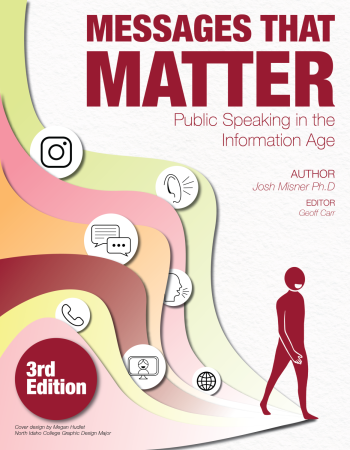

 Messages that Matter: Public Speaking in the Information Age – Third Edition
by
Messages that Matter: Public Speaking in the Information Age – Third Edition
by

Research mapping is a visual way to organize your ideas and sources before writing or giving a speech.
👉 In speeches, research mapping ensures your supporting material (statistics, stories, expert opinions) actually connects back to your main point.

Benefits of Research Mapping
You are giving a speech, but you will use other people's expertise and experience to help support what you may already know. Determining the best people and sources to support your ideas is the first step to high quality research!
Who would provide authoritative information on your topic?
|
"Constructed" authorities Individuals who hold advanced degrees in a subject, have many years of professional experience, or have been widely recognized for their mastery of a topic. |
"Contextual" authorities Nonprofessional individuals whose personal experience on your topic is appropriate in the context of your speech. |
|
|
|
|
|
|
|
|
|
|
What authorities would be most relevant and entertaining for the other students in your audience?